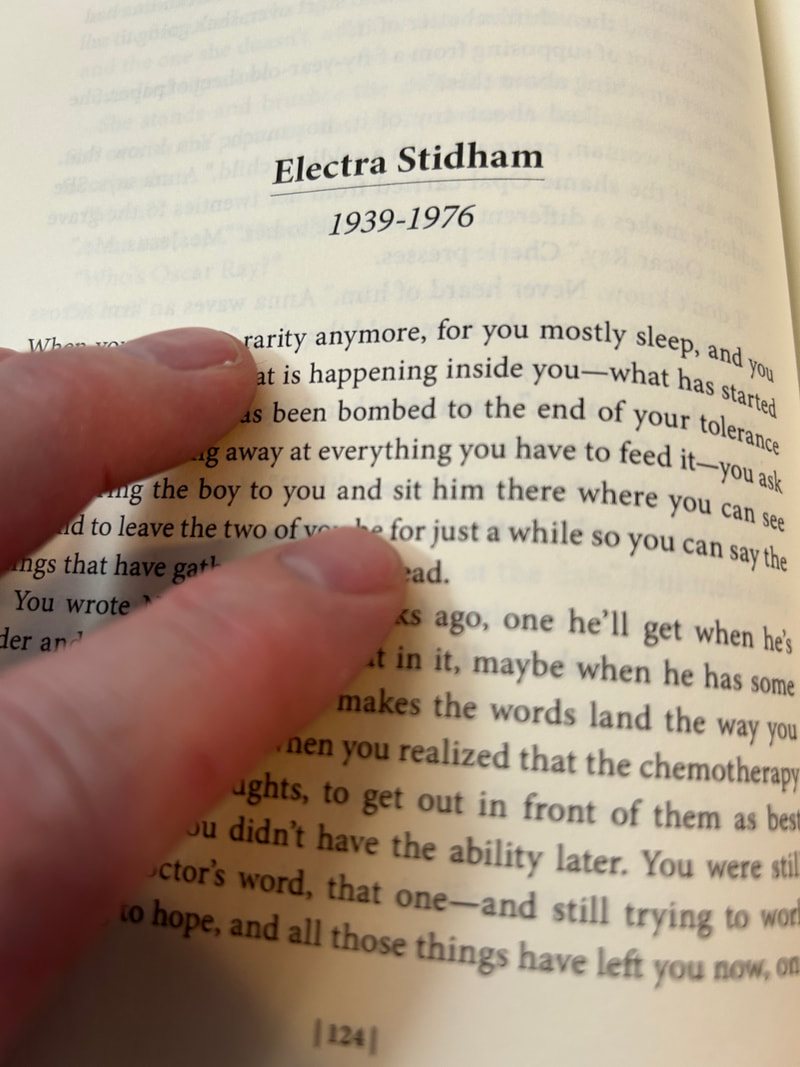|
So I hear what you're saying: "Craig," you're saying, "just how much of this thing is memory and just how much is imagination? You're hinting at both, but you're not really giving me the scoop. Is Northward Dreams mostly memory or mostly imagination?" Yes. That's my answer. OK, OK, so as we dive deeper into the characters and their breakout chapters, here's where the imagination definitively comes in. Erica Stidham--Charley's eventual wife, Ronnie's former wife, Nathan/Nate's forever mom, a woman with her own power dependent on no man—is no longer with us. The woman whose life provided some inspiration for her—remember the great gift I talked about in the previous installment—is most assuredly still here. She's my mother. I ought to know. You happy now? A minor bit of craft talk: When I start writing something new, I usually know little about what is going to happen but much about who will be in the middle of it. That was mostly true for Northward Dreams, save for one character: Electra. I always knew she'd be leaving early, mostly because I deeply knew the pain her son was in, and would have to be in, and would spend the story fighting against. And sure enough, when the structure of the story began taking shape, we eventually got to Electra, and her busting loose from the established timelines had to happen in a way that fortified the loss of a little boy who grew to be a good, flawed, troubled man: It's one of the cruel jokes of the universe, that he'd come to you not a year and a half ago and said, Am I going to die someday? ... You'd had to sit him down for one of the Big Talks that's in all the child development books, and you'd had to explain that, yes, he will die someday, we all die after all, but not for a long, long time. Are you and Charley going to die? Yes, but not for a long, long time. Daddy? Yes. But again... More craft talk: I mention empathy a lot. It's an essential ingredient. When a memory prompts an idea, imagination sweeps in and leaves you with characters whose defining characteristics and subtleties are yet to be discovered. Empathy—understanding them and their thoughts, choices, and motivations—is the pathway to realizing what you wish to do with the work. I found empathy with Electra, and found her to have surface-level commonalities with my mother but also to possess qualities that were uniquely hers. I didn't have to imagine my mother's death—and good, because I would have hated to contemplate that. I had to feel what losing Electra would be like—her own sense of it, yes, but also, and especially, what it would do to her child. It was a gut punch, both ways. (Be sure to note in the comment box that you wish for a signed copy. (Purchases through Bookshop.org can be dedicated to the independent bookstore of your choice, an excellent option for those who prefer online shopping.) Previously
0 Comments
Your comment will be posted after it is approved.
Leave a Reply. |
About CraigCraig Lancaster is an author, an editor, a publication designer, a layabout, a largely frustrated Dallas Mavericks fan, an eater of breakfast, a dreamer of dreams, a husband, a brother, a son, an uncle. And most of all, a man who values a T-shirt. Archives
July 2024
By categoryAll 600 Hours Of Edward And It Will Be A Beautiful Life Awards Books Bookstores Community Connection Craft Craig Reads The Classics Dreaming Northward Education Edward Adrift Family Geography History Libraries Memory Montana NaNoWriMo Northward Dreams People Plays Poetry Public Policy Q&A Social Media Sports Stage Texas The Fallow Season Of Hugo Hunter The Summer Son This Is What I Want Time Travel Work Writers Writing Archives
July 2024
|


 RSS Feed
RSS Feed